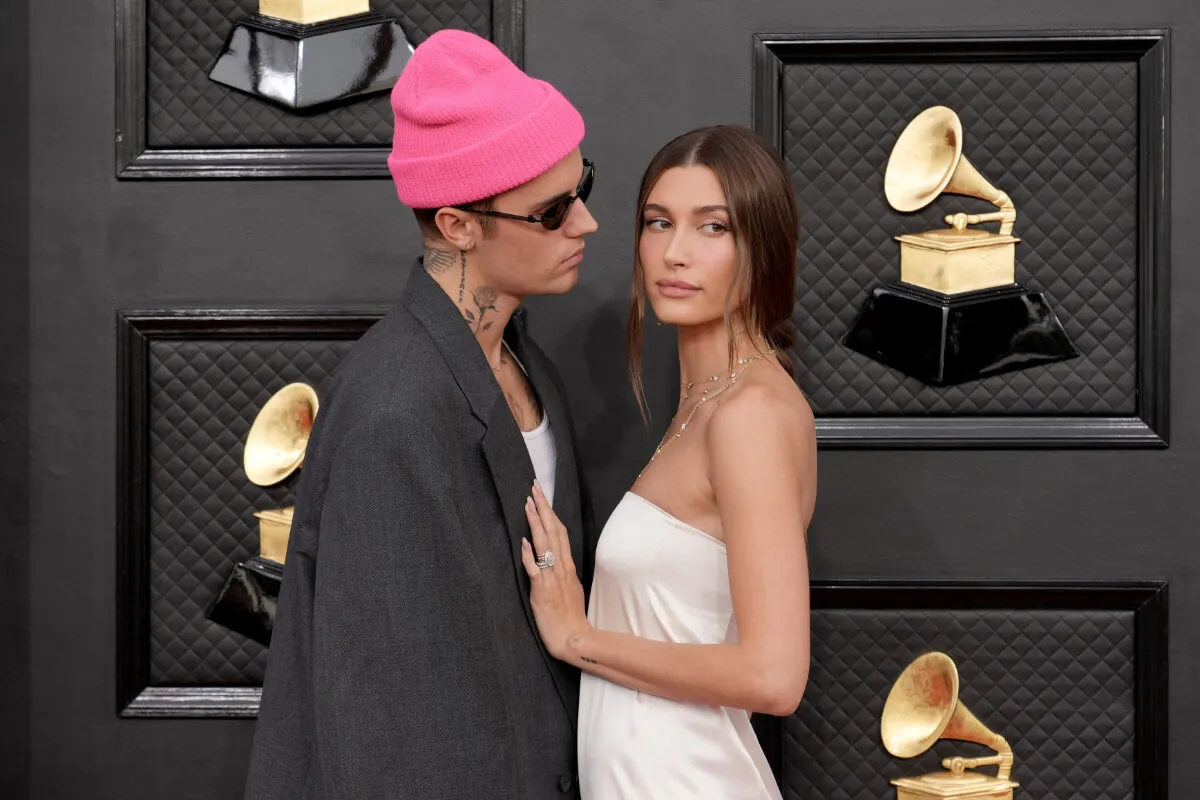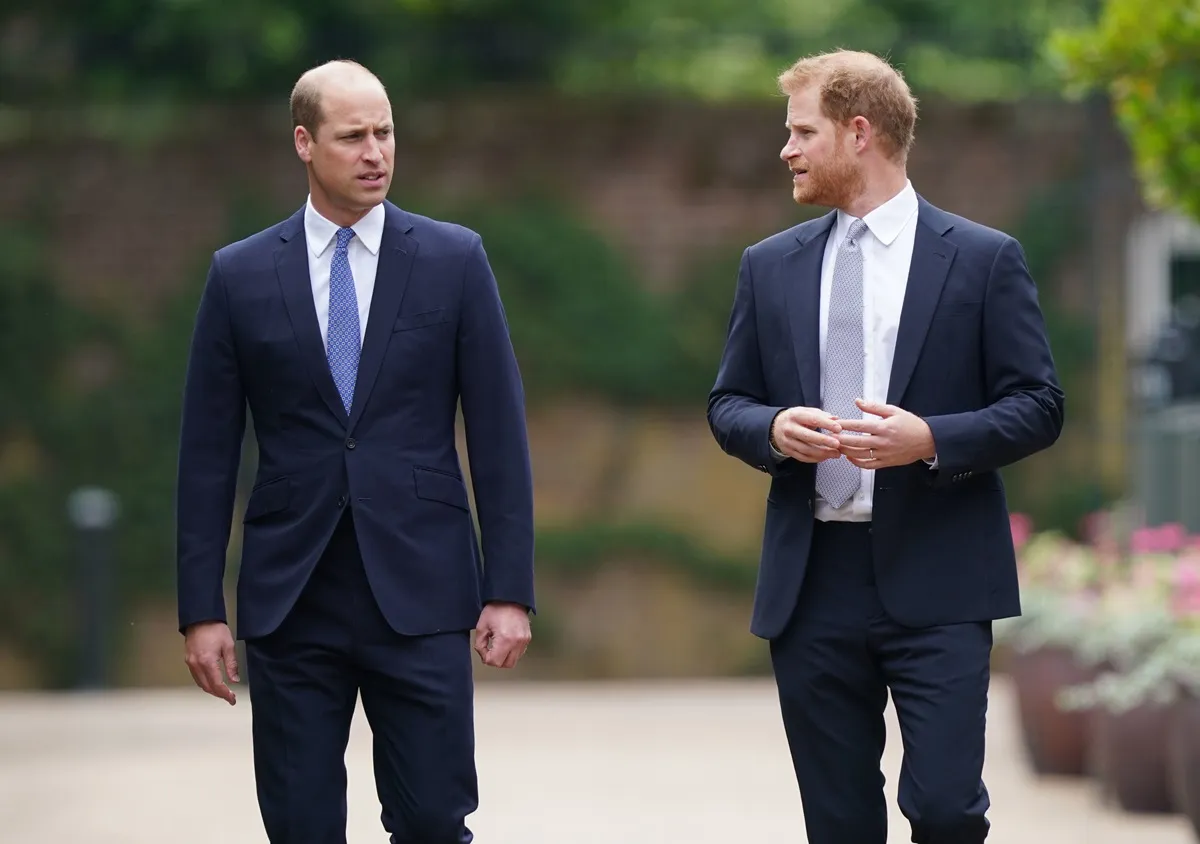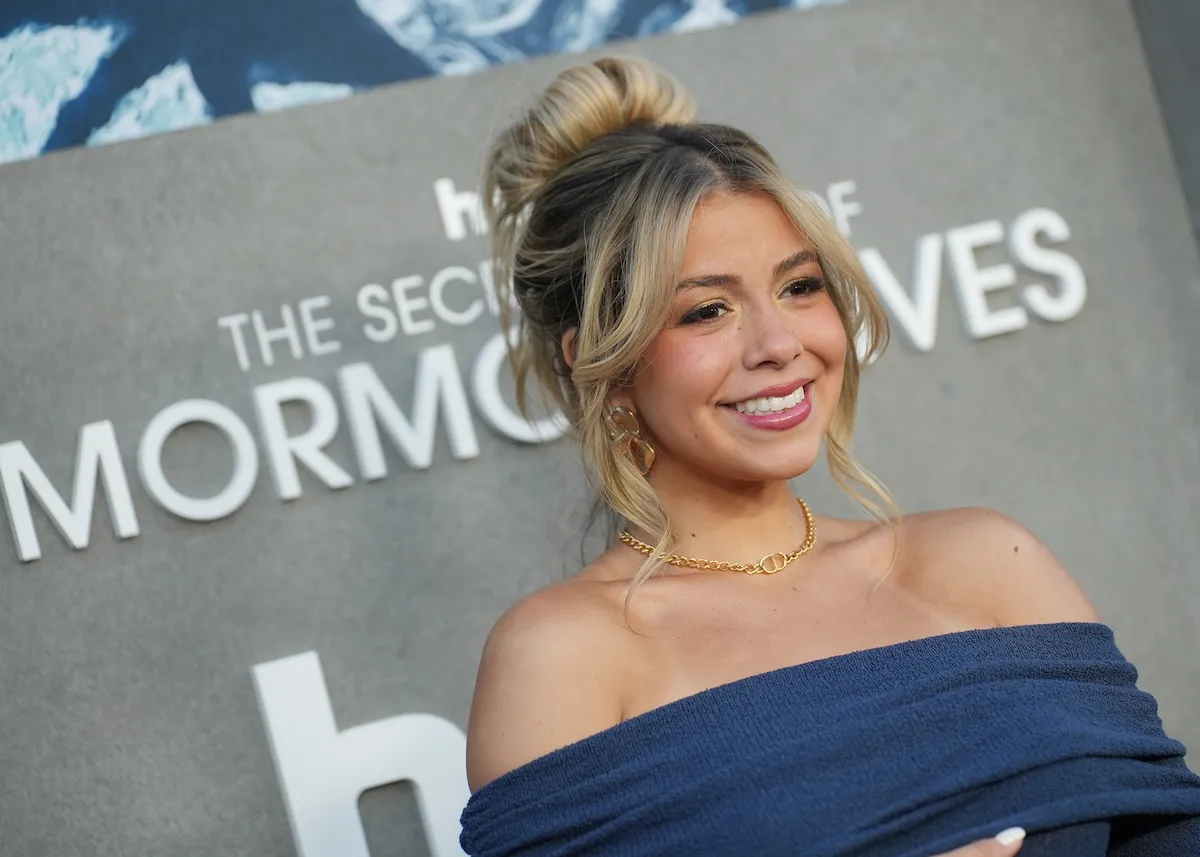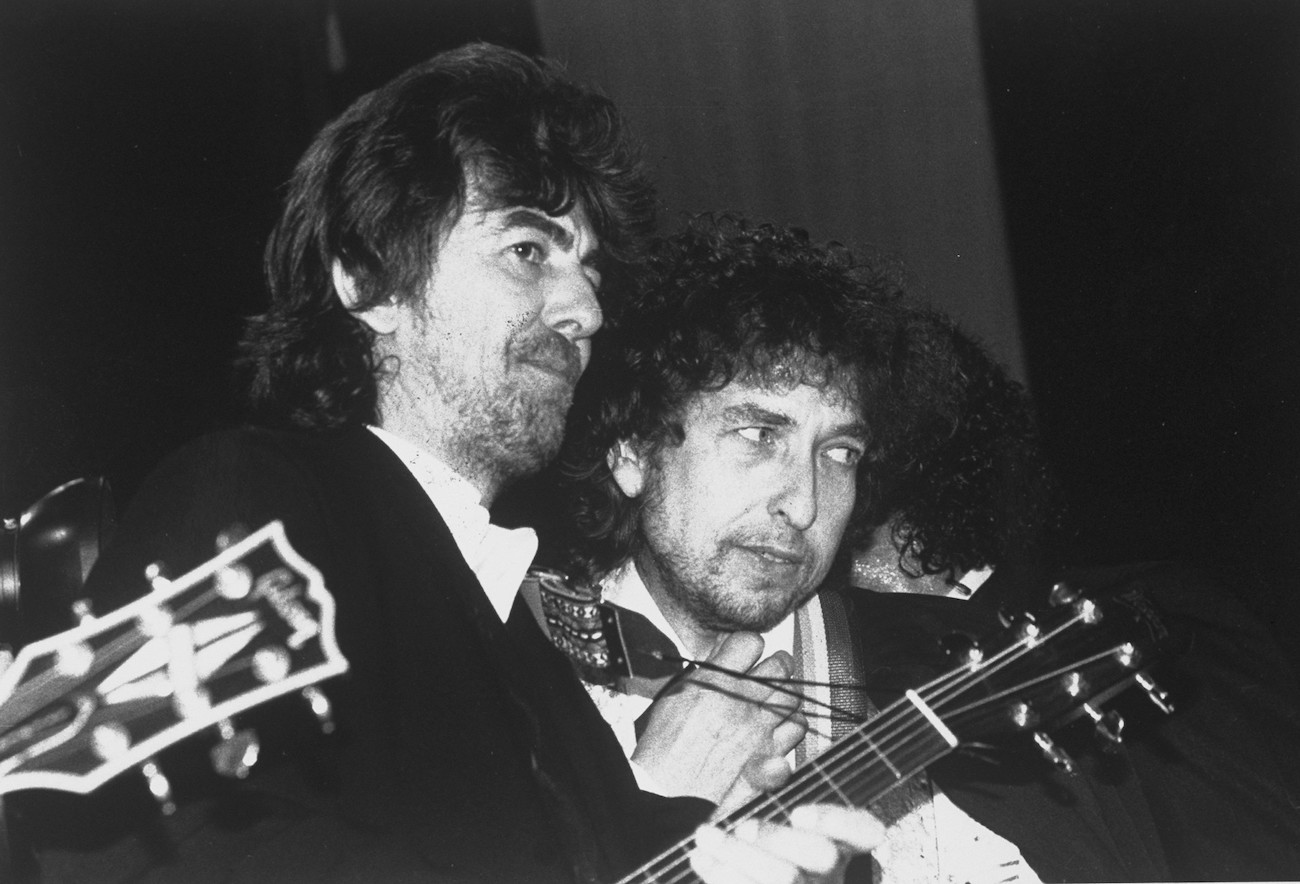
George Harrison Said Everything Bob Dylan Did, Good or Bad, Represented Something That’s Him
George Harrison said everything Bob Dylan did, good or bad, represented something that was him. He admired the “Blowin’ in the Wind” singer’s individualism.
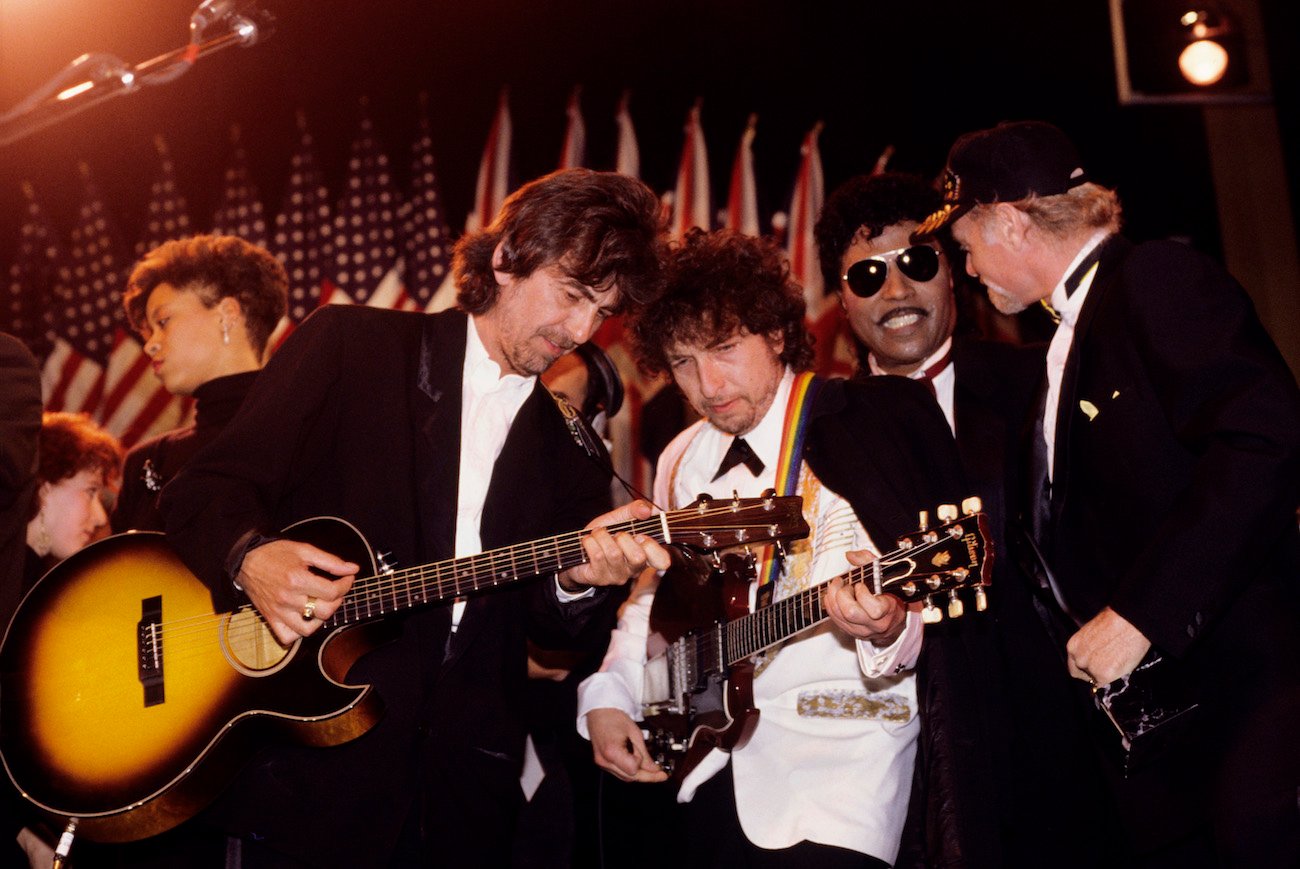
George Harrison supported Bob Dylan even when fans didn’t
In Here Comes The Sun: The Spiritual And Musical Journey Of George Harrison, Joshua M. Greene wrote that as a teenager, George first saw Dylan in Liverpool on a Granada television program about New York’s beat poets.
“While appearing in Paris in 1964, the Beatles picked up two of Bob Dylan’s albums at a radio station and were so mesmerized by his wise lyrics and simple chords that they played the albums constantly in their Hôtel George V suite,” Greene wrote.
The admiration was mutual. “Dylan drove cross-country from Denver to New York in 1963 with friend and photographer Barry Feinstein, playing the radio nonstop, and by mid-journey, it was clear to Dylan that the Beatles were ‘doing things nobody was doing. Their chords were outrageous and their harmonies made it all valid, but I kept it to myself that I really dug them,’ he told biographer Anthony Scaduto.
“‘Everybody else thought they were for the teenyboppers, that they were going to pass right away, but it was obvious to me that they had staying power.'”
The Beatles finally met Dylan in August 1964. During the meeting, Dylan allegedly turned the band on to marijuana. George became a huge fan of Dylan. He was amazed at everything the singer/songwriter did, whether it was folk, rock, or country. Other fans weren’t as open-minded.
He attended Dylan’s performance at London’s Royal Albert Hall in May 1965. Dylan walked on stage with an electric guitar. It prompted boos from fans “who viewed the switch from acoustic as a betrayal of his folk purity,” Greene wrote.
He continued, “George called those who walked out of the concert ‘idiots’ and argued ‘it was all still pure Dylan, and he has to find out his own directions. If he felt he wanted electrification, that’s the way he has to do it. Who’s laying down the rules?’
“Dylan had started his career with folk songs and protest music but by 1966 had moved away from pointing fingers at others and begun examining himself,” Greene continued.
George loved everything Dylan did, good or bad
The Beatle was entering a period of self-examination around the same time as Dylan. He’d begun to explore spirituality. When George saw Dylan deciding his own path, it inspired him to do the same even more.
Greene wrote, “Like Dylan, George was beginning to see that his next step needed to be away from everything he had done up to that moment.”
In 1968, George visited Dylan and The Band for Thanksgiving following Dylan’s motorcycle accident. The singer-songwriter had also recently gone into semi-retirement. It was strange seeing Dylan with no confidence. However, George realized that Dylan’s self-imposed exile was an example of his conviction.
“Watching Dylan over Thanksgiving in Woodstock in 1968 showed George how happy someone could be following his own direction and making his own rules,” Greene wrote. “If Dylan walked away at his moment of triumph to be his own man, why could George not do the same?”
In 1977, George told Crawdaddy, “And I thought, ‘Isn’t it great, because I know people are going to think, ‘S***, what’s Dylan doing?” But as far as I was concerned, it was great for him to realize his own peace; and it meant something.
“You know, he’d always been so hard … and I thought, ‘a lot of people are not going to like this.’ But I think it’s fantastic because Bob has obviously had the experience.”
George once said, “Even his stuff which people loathe, I like, because every single thing he does represents something that’s him.”
The former Beatle was thankful for Dylan
George continued to be amazed by everything that Dylan did, good or bad, in and out of the recording studio.
“Dylan’s influence was incredible,” Barry Feinstein, a friend of both George and Dylan, told Greene. “You couldn’t be with Dylan and not be influenced, not think about everything that you’ve done and see it simply as bulls*** by comparison. I was with Dylan at a party when he said to Mick Jagger, ‘Are you serious about
what you write and play and sing? You can’t be serious about your music.’ Mick said, ‘Of course I am.’ ‘No, man,’ Bob said. ‘That kind of music’s not serious.’ That gave me a handle on what happened to George.
“People who knew Bob would get this feeling, ‘Take everything I’ve done and throw it out and let me start over again. This is where it’s at. Let me see if I can get on the same trip.’ One thing that was really important for Dylan was that he believed once you’ve done something, you don’t go back to fix it. Move on. That was an important lesson for George.
“If you write a song or take a picture, then later you don’t think it was that good—leave it, let it go, and get on with the next thing. That’s what made Dylan great, and that’s what Bob’s influence was on George.”
In 1989, George told Mark Rowland that he was thankful for Dylan. “I think being out there, whether you like him or not, he’s Bob, and I’m thankful that there’s people like that.” George didn’t want to imagine a world without Dylan.
